2024 International Conference on Information Technology, Electrical and Computer Science (ITECS2024)
Paper Template Submission Form

Honorary Chair
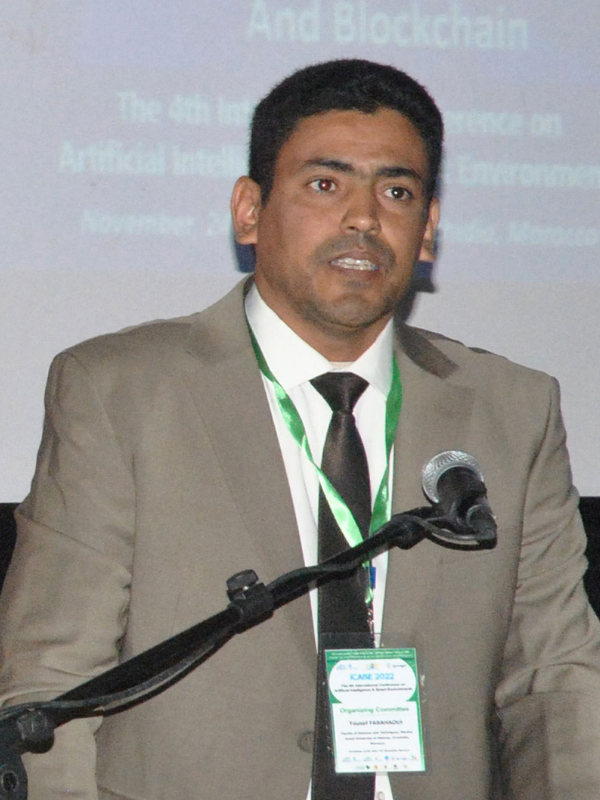 Prof. Yousef Farhaoui, Moulay Ismail University, Morocco
Prof. Yousef Farhaoui, Moulay Ismail University, Morocco
Biography:
Prof. Dr. Yousef FARHAOUI, is a Professor at Moulay Ismail University, Faculty of sciences and Techniques, Morocco. Chair of IDMS Team, Director of STI laboratory. Local Publishing and Research Coordinator, Cambridge International Academics in United Kingdom. He obtained his Ph.D. degree in Computer Security from Ibn Zohr University of Science. His research interests include learning, e-learning, computer security, big data analytics, and business intelligence. Farhaoui has three books in computer science. He is a coordinator and member of the organizing committee and also a member of the scientific committee of several international congresses, and is a member of various international associations. He has authored 7 Book and many Book Chapters with Reputed Publishers such as Springer and IGI. He is served as a Reviewer for IEEE, IET, Springer, Inderscience and Elsevier Journals. He is also the Guest Editor of many Journals with Wiley, Springer, Inderscience, etc. He has been the General Chair, Session Chair, and Panelist in Several Conferences. He is Senior Member of IEEE, IET, ACM and EAI Research Group.
Conference Chair
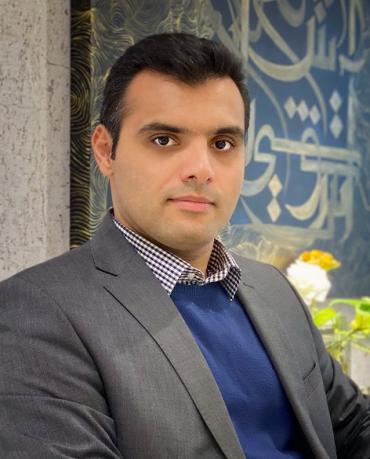 Dr. Masoud Taghavi, Chung-Ang University, Seoul, South Korea
Dr. Masoud Taghavi, Chung-Ang University, Seoul, South Korea
Biography:
Masoud Taghavi is a Post-Doctoral Research Fellow at Chung-Ang University (CAU) in Seoul, South Korea, PhD in Mechanical Engineering- Energy Conversion, and head of mechanical engineering department, at faculty of Noshahr, Technical and Vocational University (TVU), Iran. His research interests are mechanical engineering, energy engineering, hydrogen liquefaction, production, and storage, LNG, fuel cell, sustainable energies and green systems, solar energy and photovoltaic panels (PV), renewable energies and HVAC new technologies fields, low energy building, and CCUS. For more than 10 years, Masoud has worked as an HVAC engineer in buildings, a researcher, and a teacher for various universities in Iran. Masoud was introduced as the "Top Researcher" and "Top Lecturer" in the faculty of Noshahr, Technical and Vocational University (TVU), Iran, respectively in 2020, and 2021, 2022.
Keynote Speakers
 Dr. Alexander Molokanov, School of Energy Science and Engineering, Harbin Institute of Technology, China
Dr. Alexander Molokanov, School of Energy Science and Engineering, Harbin Institute of Technology, China
Biography:
Dr. Alexander Molokanov joined the Harbin Institute of Technology, China, in September 2023 as an Associate Researcher. Prior to this, he spent 12 years in various research roles, including Junior Researcher, Researcher, and Senior Researcher at the Central Institute of Aviation Motors in Moscow, Russia. He also worked part-time as a Junior Researcher at the Federal Research Center of Problems of Chemical Physics and Medicinal Chemistry of the Russian Academy of Sciences in Chernogolovka, Moscow region, and as a Senior Lecturer at the Moscow Power Engineering Institute in Moscow, Russia.
Dr. Molokanov obtained his PhD in Chemical Technology of Fuels and High-Energy Substances from the Gubkin Russian State University of Oil and Gas. Throughout his career, he has been involved in more than six major research projects. Notably, he participated in the development of a Computer-Aided Engineering (CAE) system for modeling processes in fuel systems of aircraft engines. His research interests include modeling oxidation, combustion, and thermo-destruction processes.
Dr. Molokanov is a member of the Russian Engineering Academy and serves on state certification commissions at the Moscow Power Engineering Institute (MPEI), the Moscow Aviation Institute (MAI), and the Gubkin Russian State University of Oil and Gas. His extensive research and academic contributions have significantly advanced the field of energy science and engineering.
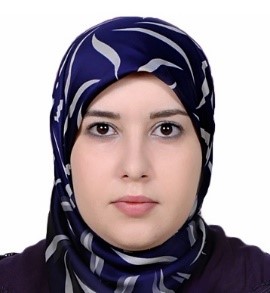 Dr. Hayat El Baamrani, Ibn Zohr University, Morocco
Dr. Hayat El Baamrani, Ibn Zohr University, Morocco
Biography:
Hayat El Baamrani received her PhD in Thermal and Energetics in 2023 and her M.Sc. in Energy Efficiency and Building Control at Ibn Zohr University in Agadir, Morocco. His research activities focus on the numerical and experimental study of liquid film evaporation, phase change phenomena, heat and mass transfer, and energy efficiency in buildings. In addition to her research work, she has been involved in a variety of teaching activities as a part-time lecturer at Ibn Zohr University.
 Prof. Pavel Loskot, ZJU-UIUC Institute, China
Prof. Pavel Loskot, ZJU-UIUC Institute, China
Biography:
Pavel Loskot joined the ZJU-UIUC Institute, Haining, China, in January 2021 as Associate Professor after 14 years being the Senior Lecturer at Swansea University in the UK. He obtained his PhD degree in Wireless Communications from the University of Alberta in Canada, and the MSc and BSc degrees in Radioelectronics and Biomedical Electronics, respectively, from the Czech Technical University of Prague in the Czech Republic. In the past 25 years, he was involved in numerous collaborative research and development projects, and also held a number of consultancy contracts with industry. Pavel Loskot is a Senior Member of the IEEE, a Fellow of the Higher Education Academy in the UK, and the Recognized Research Supervisor of the UK Council for Graduate Education. His current research interests focus on mathematical and probabilistic modeling, statistical signal processing and classical machine learning for multi-sensor data in biomedicine, computational molecular biology, and wireless communications.
 Dr. Neil A. Gordon, University of Hull, The United Kingdom
Dr. Neil A. Gordon, University of Hull, The United Kingdom
Biography:
Neil Gordon is a reader in Computer Science. He has research interests at the interface of mathematics with computer science, particularly in the areas of finite geometry and its applications and in formal approaches. He is also an advocate for the effective development and use of technology for teaching, especially in higher education, and has worked on a number of projects with the AdvanceHE. After a joint degree in Mathematics and Computer Science, he went on to complete a PhD in Applied Mathematics (Finite Geometry and Computer Algebra, with Applications). This was followed by work as a Research Assistant, initially on geometry and group theory, and later on solving differential equations and their applications in mathematical physics. He worked for some time as an Educational Technology Advisor, exploring and supporting the use of computer technology in teaching mathematics. In 2000, he began working as a lecturer in Computer Science.
Technical Program Committee
 Prof. Serafeim A. Triantafyllou, University of Macedonia, Greece
Prof. Serafeim A. Triantafyllou, University of Macedonia, Greece
Biography:
Serafeim A. Triantafyllou is a Professor of Computer Science. He has worked as a Professor of Computer Science in schools of Primary and Secondary Education of the Greek Ministry of Education and Religious Affairs. He is a certified Microsoft Innovative Educator and a Microsoft Innovative Educator Expert for 2023-2024. He was born in Thessaloniki, Greece. Serafeim received his BSc in Applied Informatics from the Department of Applied Informatics of University of Macedonia (Greece), an MSc degree in Continuing Education from the Department of Educational and Social Policy of the University of Macedonia (Greece), and a Master Degree of Education in Special Education from the Department of Education of University of Nicosia (Cyprus) and the Department of Educational Sciences and Early Childhood Education of University of Patras (Greece). He has completed to satisfaction the (400 hours) educational program in intercultural education from the Department of Economics of University of Piraeus. He has completed to satisfaction the 1st EURASIP-GAIPDM Seasonal School on “Learning from Signals, Images, and Video” from the School of Informatics of Aristotle University of Thessaloniki (Greece). He holds a certificate of Membership of IEEE Education Society that recognizes him as the Affiliate in good standing, denoting a personal and professional commitment to the advancement of technology. He has attended IEEE conferences, Lifelong learning conferences and other education conferences. Serafeim taught as Teaching and Research Assistant at the University of Macedonia from 2021-05 to 2021-09 , and as Teaching and Research Staff in School of Pedagogical and Technological Education (ASPETE), Annex of Thessaloniki (Greece) for the academic years 2017-2019 and 2022-2023 respectively. Serafeim is also a certified trainer for Adults of non-formal education by the National Organization for the Certification of Qualifications & Vocational Guidance – EOPPEP. He worked as a professor of Computer Science in Public Vocational Training Institutes. He also worked as a professor of Computer Science in AKMI Vocational Training Institute, in PASTER Vocational Training Institute, in Vocational Training Centres and Lifelong Learning Centres. His research interests are in the areas of Gamification technologies, Computational Thinking, Artificial Intelligence in Education, Didactics, E-Commerce Technologies and User Experience, Cloud Computing, Web browser technologies and programming languages, Special Education, Lifelong learning and e-learning. Serafeim is also author of computer science and pedagogy books.
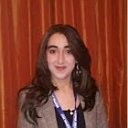 Prof. Sara TEIDJ, Moulay Ismail University of Meknes, Morocco
Prof. Sara TEIDJ, Moulay Ismail University of Meknes, Morocco
Biography:
Prof. Sara Teidj, Department of Science and Engineering, Faculty of Science and Technology, University Moulay Ismail of Meknes, Morocco. She is an Associate Professor at the University Moulay Ismail and a member of the research team "Modeling, Control of Optoelectronics Systems and Components." She obtained a Ph.D. degree in Mechanics from the University Abdelmalek Essaadi of Tetouan and a Master's degree in Mechatronics.
Skills and Expertise: Mechanical Engineering, Electrical Engineering, MATLAB Simulation, Energy Efficiency, Mechatronics.
 Prof. Priyadarsan Parida, GIET University, India
Prof. Priyadarsan Parida, GIET University, India
Biography:
Dr. Priyadarsan Parida is an Associate Professor at GIET University, where he is involved in academic activities (including teaching various UG/PG courses related to electronics & communication engineering) and research. Dr. Parida has 10 years of teaching and 5 years of research experience. The research activities are reflected in different international journals and conferences of repute. His research interests mainly focuses in different computer vision applications to biomedical images.
Disciplines: Electronic EngineeringEngineering Education. Skills and expertise: Computer Vision, Image Segmentation, Pattern Recognition, Wavelet Transform, ExtractionImage Processing, Feature ExtractionSignal, Image and Video Processing, Object Recognition, Digital Image Processing, Machine Vision, Feature Selection, Signal Processing, Wavelet Analysis, MATLAB, Image Data Analysis, Images, Medical and Biomedical Image Processing
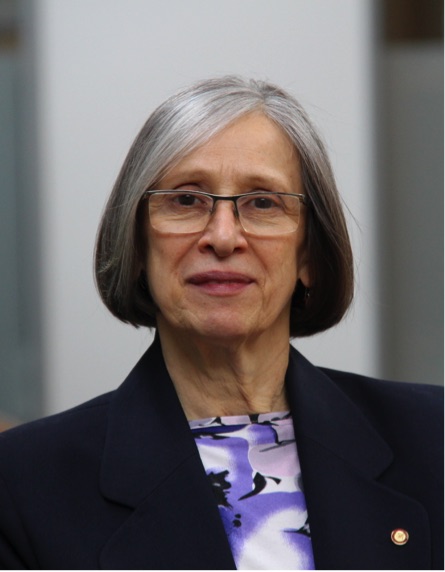 Prof. Ljiljana Trajkovic, Simon Fraser University, Canada
Prof. Ljiljana Trajkovic, Simon Fraser University, Canada
Biography:
Ljiljana Trajkovic received the Dipl. Ing. degree from University of Pristina, Yugoslavia, the M.Sc. degrees in electrical engineering and computer engineering from Syracuse University, Syracuse, NY, and the Ph.D. degree in electrical engineering from University of California at Los Angeles. She is currently a professor in the School of Engineering Science, Simon Fraser University, Burnaby, British Columbia, Canada. Her research interests include communication networks and dynamical systems. Dr. Trajkovic served as IEEE Division X Delegate/Director, President of the IEEE Systems, Man, and Cybernetics Society, and President of the IEEE Circuits and Systems Society. She was General Co-Chair of SMC 2020, SMC 2016, and HPSR 2014, Technical Program Co-Chair of ISCAS 2005, and Technical Program Chair and Vice General Co-Chair of ISCAS 2004. She serves as Editor-in-Chief of the IEEE Transactions on Human-Machine Systems and served as Associate Editor-in-Chief of the IEEE Open Journal of Systems Engineering. She was a Distinguished Lecturer of the IEEE Circuits and System Society and a Distinguished Lecturer of the IEEE Systems, Man, and Cybernetics Society. She is a Fellow of the IEEE.
 Prof. José-Fernán Martínez, Universidad Politécnica de Madrid, Spain
Prof. José-Fernán Martínez, Universidad Politécnica de Madrid, Spain
Biography:
Biography: José-Fernán Martínez is a pioneer and one of the most respected international scholars in the field of communication. He received his Ph.D. degree in Telematic Engineering from the Universidad Politécnica de Madrid (UPM) Spain in 2001. He is a Full Professor at DTE (Department of Telematics and Electronics Engineering) and, director of Group of Next-Generation Networks and Services at the same University. He is graduated in Electronic and Telecommunications Engineering in 1993 where he started R&D tasks. Since 1993 to 1996, he works as technical responsible in research projects at National Telecommunications Company, and he was technical manager in his own Company S&H S.L. His main interest areas and expertise are ubiquitous computing and Internet of things (IoT); networked cooperating robots, new advanced services for wireless sensor & actuators networks (WSAN); cyber physical systems (CPS); next-generation telematic network and services for internet new generation; advanced telecom services, advanced software architectures, component-based distributed applications and intermediation platforms (middleware); and high performance and fault tolerant for resilient systems. He has authored several national and international publications included in the Science Citation Index in his interest areas, and he is technical reviser and chair of technical national and international events on Telematics, as well as member of different international and scientific committees. He has participated on several International and European Projects, as a responsible, such as: AFARCLOUD, DEMETER SWARMs, I3RES, e-GOTHAM, DEMANES, ACCUS WoW, uSWN, SODA, ESNA, DiYSE, LIFEWEAR, PERISEC, PROPSI, EXHAUSTIF, CLARA, ENISA, COMDIST, SMART, MATES, VITAL, SCARAB, MAIN-E, ALICE, and so on. He is responsible for different Spanish and European public-funded research projects and research contracts with different IT companies. Mr. Martinez has been invited as a research foreign expert on Beijing Institute of Technology (BIT) in China in 2011, being it one of the most important institutions on China. Also, He was working as a guest professor at Mälardalen University Sweden (MDH) at the School of Innovation, Design & Engineering (IDT), in Robotics and Avionics since August 2013 to 2018, after being invited as an international expert in Sweden.
 Prof. Cristian Paul Chioncel, Babeş-Bolyai University, Romania
Prof. Cristian Paul Chioncel, Babeş-Bolyai University, Romania
Brief Introduction
Cristian-Paul Chioncel is a teacher in the field of Electrical Engineering in the Department of Electrical and Computer Engineering of the Faculty of Engineering and Management of the ”Babeș-Bolyai” University Cluj-Napoca.
Lecturer Chioncel's research concerns are focused on renewable energies and signal processing. The research aims at:
- monitoring and analysis of wind potential using specific methods and techniques;
- analysis of the performance of solar photovoltaic systems connected to the grid and insular;
- the development of command and control algorithms for the operation of wind power plants (CEE) at the maximum power point (MPP);
- advanced signal processing.
 Prof. Pavel Loskot, ZJU-UIUC Institute, China
Prof. Pavel Loskot, ZJU-UIUC Institute, China
Biography:
Pavel Loskot joined the ZJU-UIUC Institute, Haining, China, in January 2021 as Associate Professor after 14 years being the Senior Lecturer at Swansea University in the UK. He obtained his PhD degree in Wireless Communications from the University of Alberta in Canada, and the MSc and BSc degrees in Radioelectronics and Biomedical Electronics, respectively, from the Czech Technical University of Prague in the Czech Republic. In the past 25 years, he was involved in numerous collaborative research and development projects, and also held a number of consultancy contracts with industry. Pavel Loskot is a Senior Member of the IEEE, a Fellow of the Higher Education Academy in the UK, and the Recognized Research Supervisor of the UK Council for Graduate Education. His current research interests focus on mathematical and probabilistic modeling, statistical signal processing and classical machine learning for multi-sensor data in biomedicine, computational molecular biology, and wireless communications.
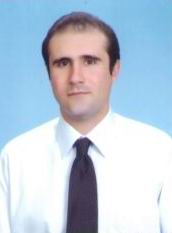 Prof. Dr. Emin Taner ELMAS, IGDIR University, Turkey
Prof. Dr. Emin Taner ELMAS, IGDIR University, Turkey
Biography:
Asst. Prof. Dr. Emin Taner ELMAS, has graduated from faculty of Mechanical Engineering as B.Sc. in 1995 and then completed his M.Sc.(Master Degree) in “Energy” at Mechanical Engineering Department of Dokuz Eylül University in İzmir, Turkey and after that he received his Ph.D. (Doctoral Degree) in “Thermodynamics” at Mechanical Engineering Department of Ege University, in İzmir, Turkey. He has graduated from “İzmir Atatürk Lisesi - High school” in 1991.
Asst. Prof. Dr. ELMAS has completed his military service as a NATO Officer in Bosnia and Herzegovina. He was a “Reserved Officer” as a “2nd Lieutenant” as an “English-Turkish Interpreter”. He was also a “Guard Commander” and served in Sarajevo, Camp Butmir within the SFOR task force of NATO. He has been awarded with 2 (two) NATO Medals and Turkish Armed Forces Service Certificate of Pride (Bosnia & Herzegovina).
Asst.Prof. Dr. Elmas is an Assistant Professor of Automotive Technology at the Department of Motor Vehicles and Transportation Technologies at Vocational School of Higher Education for Technical Sciences at IGDIR UNIVERSITY, Turkey. He is also an Assistant Professor of Bioengineering & BioSciences at the same university. He has nearly 28 years of total experience both in academia and in industry.
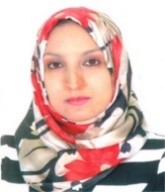 Dr. Souad Chabbi, Frère Mentouri University, Constantine, Algeria
Dr. Souad Chabbi, Frère Mentouri University, Constantine, Algeria
Biography:
Souad Chabbi received a diploma of state engineering in electronics (systems control) from the Frère Mentouri University, Constantine, Algeria. A master's degree in electronics (signal processing and systems control) and a doctor of science degree in electronics (signal processing) from the same university. She is a professor at the Frère Mentouri University, Constantine, Algeria. Her research interests include image and signal processing, specifically modeling, estimation, and 1D (mono-pulse) and 2D (multiple-pulse) Constant False Alarm Rate (CFAR) detection in ship and airplane radar systems, and CFAR ship detection in Synthetic Aperture Radar (SAR) images.